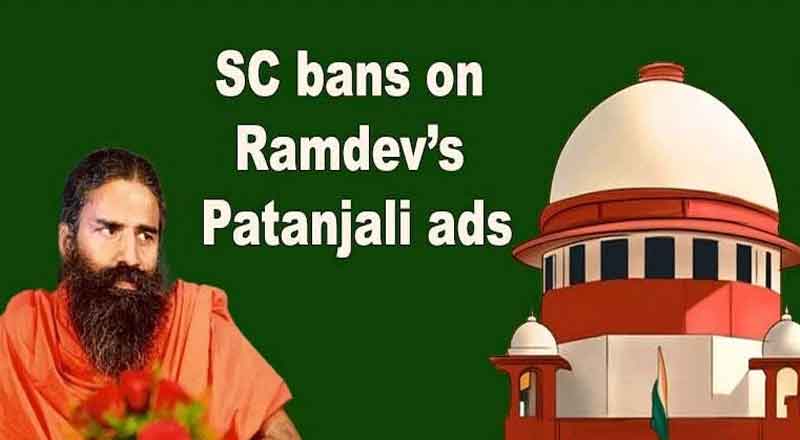- In a scathing rebuke, the Supreme Court of India has chastised Patanjali Ayurved and the central government for disseminating misleading advertisements.
- The bench, condemned the company’s dissemination of “false” and “misleading” claims about its medicines across electronic and print media, accusing the government of turning a blind eye to the issue.
- The recent case, brought forth by the Indian Medical Association (IMA), highlighted evidence of misleading advertisements by Patanjali and other ayurvedic medicine companies.
-
The case prompts critical questions about the effective regulation of medical advertisements, the government’s role in ensuring ethical advertising practices, and empowering consumers to make informed healthcare decisions.
In a scathing rebuke, the Supreme Court of India has chastised Patanjali Ayurved, co-owned by yoga guru Ramdev, and the central government for disseminating misleading advertisements. Justices Ahsanuddin Amanullah and Prashant Kumar Mishra, leading the bench, condemned the company’s dissemination of “false” and “misleading” claims about its medicines across electronic and print media, accusing the government of turning a blind eye to the issue.
The court’s condemnation follows a previous warning issued in November 2021, where Patanjali was cautioned against false claims, and Ramdev’s criticism of modern medicine and doctors was rebuked. Despite acknowledging Ramdev’s contribution to yoga, the bench, led by then Chief Justice N. V. Ramana, underscored concerns about his disparaging remarks toward other medical systems.
The recent case, brought forth by the Indian Medical Association (IMA), highlighted evidence of misleading advertisements by Patanjali and other ayurvedic medicine companies. These advertisements depicted allopathy, a prevalent modern medical system, and its practitioners in a negative light, even suggesting that doctors succumb to diseases despite taking modern medicines.
The Supreme Court’s firm stance underscores the escalating concern regarding misleading medical advertisements in India. Its directive to Patanjali and criticism of the government’s inaction signify significant strides towards enforcing responsible advertising practices and safeguarding consumers from misinformation.
The case prompts critical questions about the effective regulation of medical advertisements, the government’s role in ensuring ethical advertising practices, and empowering consumers to make informed healthcare decisions. The Supreme Court’s intervention emphasizes the necessity of a comprehensive approach, involving robust regulatory frameworks, enhanced media literacy, and responsible marketing practices within the healthcare industry.
Furthermore, the case underscores the importance of balancing the promotion of alternative medicine systems like Ayurveda with accurate and responsible portrayal in public discourse.
As debates surrounding medical advertisements persist, the Supreme Court’s verdict serves as a pivotal reminder of the imperative for transparency, accountability, and responsible conduct in the healthcare sector. It signals a call to action for stakeholders to collaborate in upholding ethical standards and protecting public health interests.
(With inputs from agencies)





